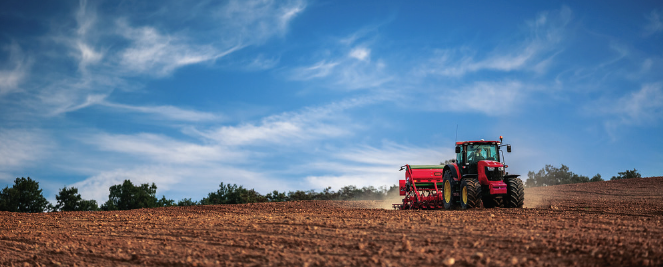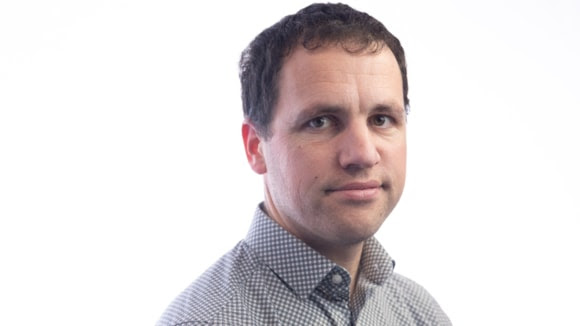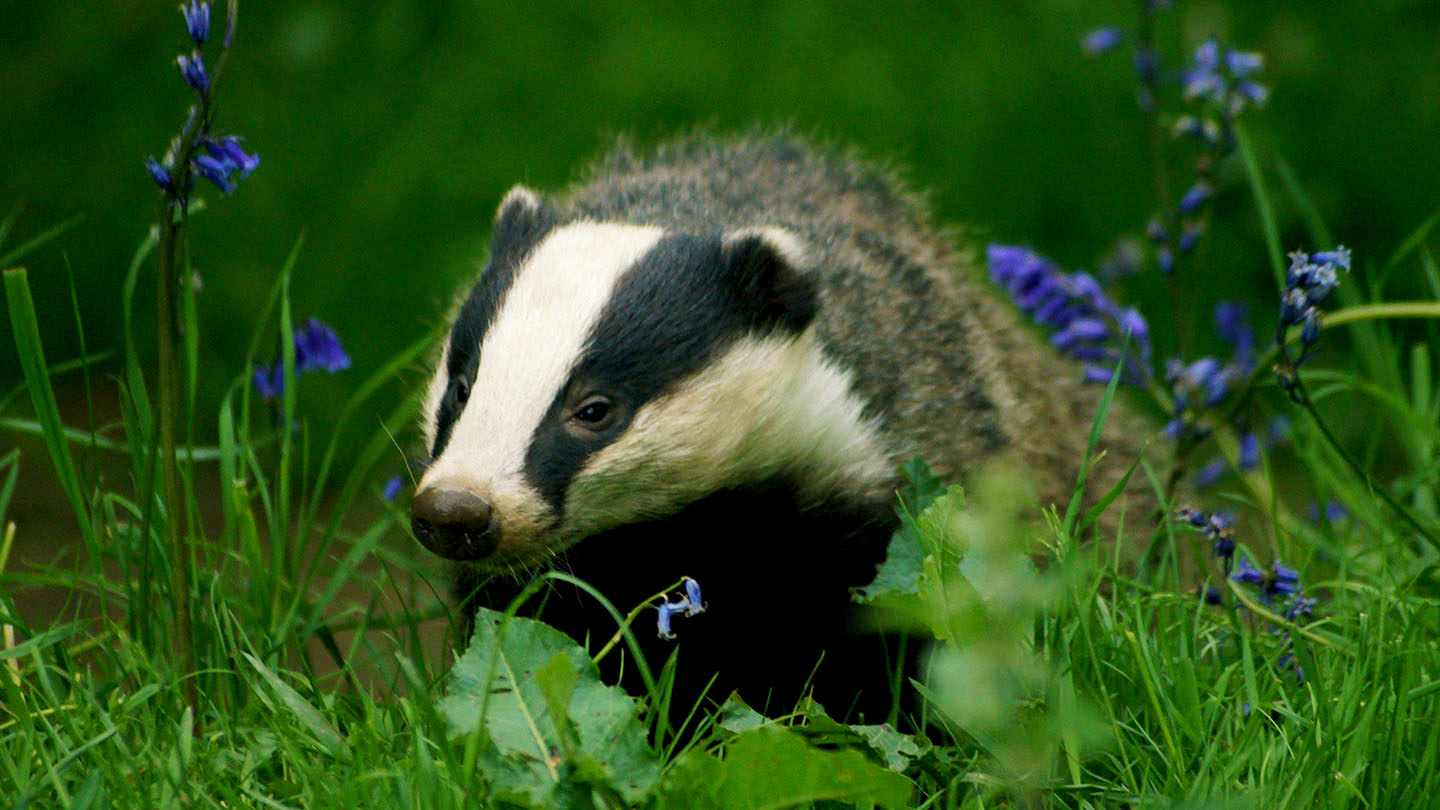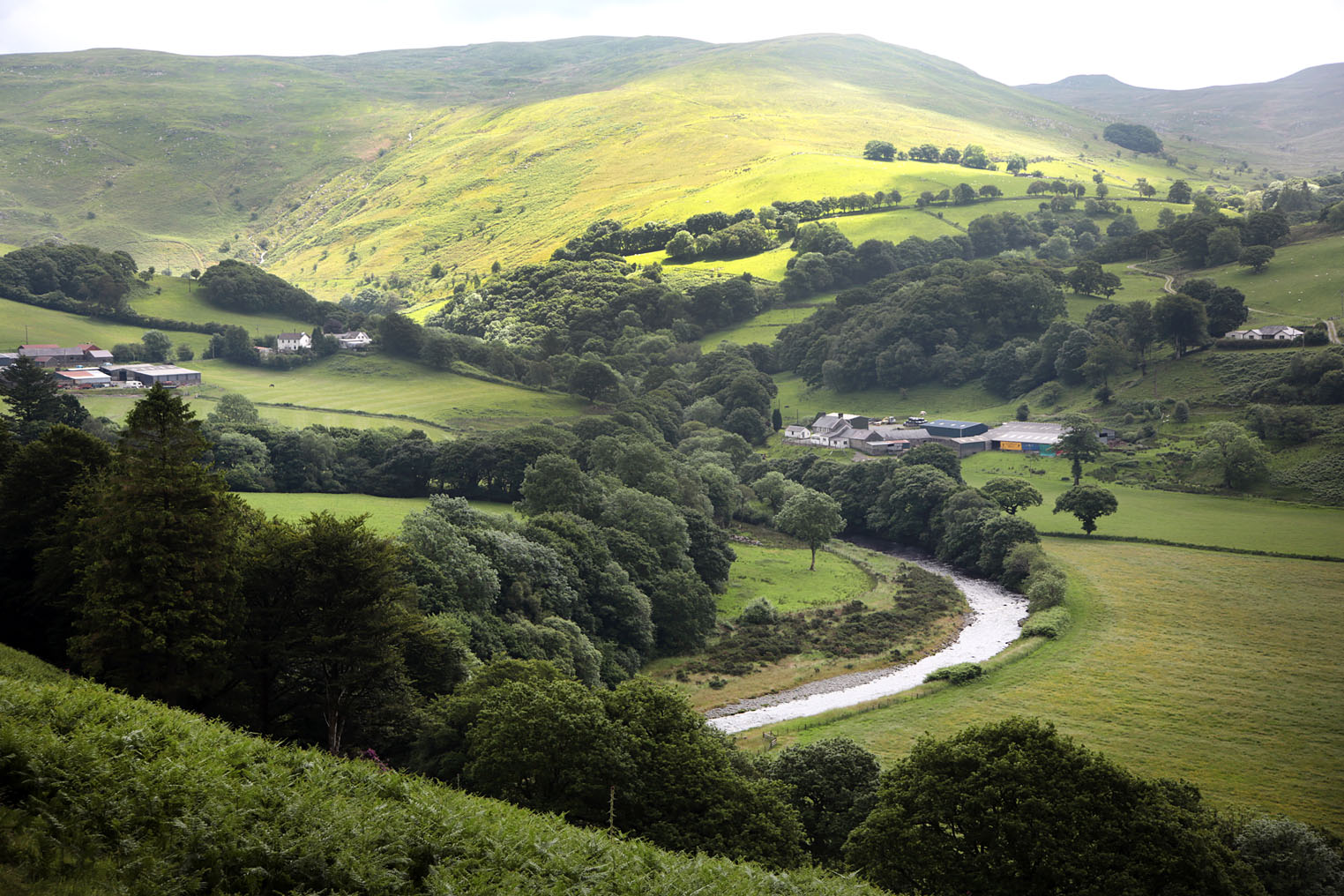Farming
Pressing questions on farm funding’s future

 FOLLOWING a debate in the House of Commons, the attitude of Welsh politicians in the UK Parliament was thrown into sharp focus by comments made by both Conservative minister Guto Bebb and Wrexham’s Labour MP Ian Lucas.
FOLLOWING a debate in the House of Commons, the attitude of Welsh politicians in the UK Parliament was thrown into sharp focus by comments made by both Conservative minister Guto Bebb and Wrexham’s Labour MP Ian Lucas.
It was Mr Lucas’ remarks which attracted the most notable reaction by Welsh politicians in the first instance.
He asked Mr Bebb: “Does the Minister agree that leaving the European Union offers a golden opportunity to assess the level of subsidy paid to farming in Wales to see whether that money can be more effectively and efficiently spent in other areas?”
The inference to be drawn from the question was crystal clear and was pounced upon by Plaid Cymru.
CALL FOR COMMITMENT ON AGRICULTURE
Carmarthenshire’s Jonathan Edwards MP, who was sitting in front of Ian Lucas MP in the Commons, called for Labour to urgently clarify whether it will cut financial support for Welsh farmers.
Plaid Cymru Shadow Cabinet Secretary for Rural Affairs, Simon Thomas, said: “Ahead of the Referendum, the people of Wales were promised that no funding would be lost by leaving the European Union. Since then, Plaid Cymru has made it our duty to fight to protect the funding that Wales receives, but Labour seems to view it as a chance for a smash and grab on Wales’ funding.
“We know that 80% of Welsh farms are dependent on European funding to support their businesses, but Labour has shown complete disregard for the interests of the people of Wales and its agriculture sector.
“Labour really has let the mask slip. Whilst Plaid Cymru is focusing on protecting the interests of Welsh communities, Labour is plotting to cut their funding.”
Mr Edwards said: “Labour’s blatant and worrying attack on Welsh agriculture is yet another sign that the Labour party simply does not understand the Welsh agriculture sector or the challenges faced by our rural communities.
“The Welsh family farm is not only a core component of the Welsh agricultural sector and the Welsh economy, but is the main channel through which we as a nation can achieve food and environmental security.
“This expression of contempt for our agricultural sector is utterly unjustified. Welsh farmers face tremendous financial challenges in selling their produce and Labour should be focusing their efforts on facilitating Welsh agricultural exports, rather than marking them as a target for austerity and cuts.
“The Labour MP’s constituency partner, the Cabinet Secretary for Environment and Rural Affairs Lesley Griffiths, urgently needs to answer whether her constituency’s partner’s question reflects official Labour Party policy.”
FARMERS ARE ‘WEALTHY LANDOWNERS’
The Labour MP was unrepentant about his remarks and has gone on to further criticise the Welsh farming community, stated that Welsh farmers are ‘wealthy landowners’.
The Herald invited the Cabinet Secretary for Environment and Rural Affairs to respond to her Westminster colleague’s remarks.
A spokesperson for the Welsh Government told us: “The First Minister made it clear to the Prime Minister earlier this week he is seeking assurances that Welsh farmers do not lose out financially as a result of Brexit. This means every penny currently received from the EU being replaced by the UK Government. The Cabinet Secretary for Environment and Rural Affairs also reiterated this to the UK Government’s Farming Minister.
“As we prepare to withdraw from the European Union, we must use the opportunity over the coming years to assess the specific needs of the farming industry in Wales and identify how we can forge distinctly Welsh policies that will enable Welsh farming to prosper in a post-Brexit world.”
‘NOT A PENNY LESS’
Welsh Liberal Democrat William Powell told The Herald: “In the economic conditions that we now face as a country, pressure on the public purse will be all the more acute. The Welsh Liberal Democrats are supporting the ‘Not a Penny Less’ campaign in terms of farm support, and this has proved popular on our stand at this year’s Royal Welsh Show.
“However, it is more important than ever for farmers to engage in the public debate, so that there is a better understanding of the vital contribution that they make as custodians of the land, in terms both of maintaining biodiversity, but also to the whole tourist sector, which we know is such a critical part of the wider rural economy.
“However, more important than anything for Welsh farming is securing long -term access to the European Single Market for our quality farm exports – and making that an essential element in the permanent post Referendum settlement. And with Andrea Leadsom MP’s comments about hill farmers ‘looking after the butterflies ’, betraying an evident lack of understanding and empathy for Welsh farming, it is vital that Wales retains a robust and distinct farming policy. Welsh Liberal Democrats will be fighting for this in the time to come.”
LABOUR INSULTS RURAL COMMUNITIES
Andrew RT Davies was trenchant in his criticism both of Mr Lucas and Lesley Griffiths: “These comments once again highlight Labour’s attitude towards rural communities, and it is remarkable that their MPs are actively lobbying to give less money to farmers.
“It follows comments from Leslie Griffiths, the Cabinet Secretary who insulted Welsh farmers by suggesting that they don’t make good business owners. Now they want to take their money away.
“During the campaign, senior UK government ministers gave guarantees that Welsh farmers would not be worse off after the UK leaves the EU, and I will continue to work with those colleagues to ensure that those promises are delivered.”
THE LESS CERTAIN MR BEBB
However, an examination of Guto Bebb’s responses to Commons questions on Wales’ farming sector reveals a less certain picture.
The Undersecretary of State was questioned repeatedly on the impact of Brexit on the funding provided to Welsh farmers.
In response to Ian Lucas’s question, rather than giving a ringing ‘no’ and committing the UK Government to maintaining funding levels, Mr Bebb said (emphases added): “We need to look at the way in which Government spend money. IF there is to be a funding mechanism in the future for Welsh agriculture, it MUST BE LOOKED at in the totality of Government spending.”
That is some way short of promises made by senior UK Government ministers that Wales’ farmers would not be worse off.
And to further underline how conditional UK Government’s support is, responding to a question from Liz Saville-Roberts, Plaid’s MP for Dwyfor Meiryonnydd, the limited reassurance given was an ‘assurance to the farming unions that the current funding situation is in place until 2018’.
That echoed a previous response to Mark Williams, Liberal Democrat MP for Ceredigion, in which the conditionality of UK Government support for Welsh agriculture was again underlined: “… The ongoing support for Welsh farming will be subject to agreements involving this Government, the way in which we exit the European Union and the decisions taken by the future Prime Minister.”
That is, again, a long way short of Andrew RT Davies’s reference to a promise that Welsh farmers would not be worse off.
The reluctance to commit to a definitive answer is striking, bearing in mind that in the same questions to the Welsh Office, Mr Bebb stated that: “The farming sector is the economic backbone of the Welsh rural economy. The total income from farming in Wales is estimated at more than £175 million, but more important is the contribution that Welsh agriculture makes to our rural communities.”
He also remarked that: “More than 60,000 jobs in Wales are dependent on the agriculture sector, and it would be short-sighted in the extreme for any Government to turn their back on a sector that puts Wales on the international map.”
‘FARMING IS WALES’ BEDROCK’
Speaking at the Royal Welsh Show last week, Glyn Roberts, President of the FUW, made a series of emphatic observations on the importance of Wales’s agricultural sector: “There are almost as many people engaged in the milk industry in Pembrokeshire as there are people making a living in our Welsh steel industry. Yet there is a clear imbalance in political focus for supporting these two very important industries – an imbalance which also extends to all our agricultural sectors.”
He added that his aspiration and, indeed, the intention of the Farmers’ Union of Wales is to change this.
“We want to see the value and importance of the rural economy truly recognised, and to build a visible and valued Rural Powerhouse – not something that attracts industrial focus in a small geographic area, like the north-east Wales ‘powerhouse’ built around foreign manufacturing; what is needed is recognition of the fact that 80% of our land mass is rural; that more than a third of Wales’ population live in rural areas; and that farming is the bedrock of our rural communities, without which vast direct and indirect contributions to Wales’ economy as a whole would disappear.”
Farming
FUW Insurance Services appoints Paul Jameson as non-executive director

Experienced insurance and risk specialist joins board as long-serving director retires
FUW INSURANCE SERVICS LTD, Wales’ leading specialist agricultural insurance broker, has announced the appointment of Dr Paul Jameson as a non-executive director.
Dr Jameson brings extensive experience in insurance and risk management, having worked as an actuary and senior executive within subsidiaries of major global insurers including Allianz, Munich Re, Legal & General and Wakam. He has held chief risk officer roles since 2020.
During his career, Dr Jameson has led multidisciplinary teams spanning actuarial services, risk management, compliance, audit, legal and marketing approvals, giving him broad experience in both strategic oversight and operational governance.
Speaking following his appointment, Dr Jameson, who lives in Colwyn Bay, North Wales, said he was looking forward to supporting the farming sector in Wales.
He said: “I am delighted to join FUW Insurance Services and would like to thank Ann, Guto and the rest of the team for their warm welcome.
“I have been impressed by the passion and commitment of the board to the farming community, and by its ambition to grow and diversify the insurance business. I am keen to support the farming profession and help ensure the continued success of the sector in Wales, particularly during periods of economic and geopolitical uncertainty.
“I hope my experience in the insurance sector will help the business build on its successes and continue to grow, especially as it explores new commercial opportunities and innovative avenues for expansion.”
Ann Beynon OBE, chair of the FUW Insurance Services board, said Dr Jameson’s expertise would be a significant asset to the organisation.
She said: “We are delighted to welcome Dr Paul Jameson to the board. His depth of experience in insurance and his understanding of risk management will be invaluable as we continue to develop and diversify our services.
“Paul’s insight and strategic perspective will help us navigate a changing insurance market, identify new opportunities for innovation and growth, and strengthen the services we provide to our customers.”
Dr Jameson’s appointment follows the retirement of Ken Isherwood, who has stepped down from the board after more than a decade of service.
Paying tribute, Ann Beynon said: “Ken’s integrity, wisdom and deep knowledge of the insurance industry have underpinned much of our success.
“It has been a privilege to work alongside him, and we wish him every happiness in his well-earned retirement.”
Community
Badger Trust launches manifesto ahead of 2026 Senedd elections

THE BADGER TRUST has published a new Cymru Badger Manifesto calling on candidates standing in the 2026 Senedd elections to commit to a science-led approach to bovine tuberculosis (bTB) and to maintain Wales’ current policy of not culling badgers.
The manifesto, released on Wednesday (Dec 10) as part of the charity’s Badgers Belong Here / Mae Moch Daear yn Perthyn Yma campaign, sets out the organisation’s position on badger protection, wildlife crime and bTB control, and urges politicians to reject calls for the reintroduction of culling in Wales.
Badger Trust argues that political decisions taken during the next Senedd term will be critical to the future of badgers, which it describes as culturally and ecologically significant to Wales. The charity says badgers have been present in Wales for more than 250,000 years and remain part of Welsh folklore, place names and rural identity.
Five key commitments
The manifesto outlines five commitments the charity is asking Senedd candidates to support, including defending what it describes as science-led policy on bTB, challenging misinformation in public debate, strengthening enforcement against wildlife crime, recognising badgers as part of Welsh heritage, and supporting local volunteer badger groups.
According to Badger Trust, 140 incidents of badger-related wildlife crime have been recorded in Wales since 2020, which it says highlights the need for improved reporting and enforcement.
The charity also points to the work of six active badger groups across Wales, which it says assist with rescuing injured animals, monitoring setts, recording road casualties and supporting local authorities.
bTB policy in Wales and England
Wales has not carried out widespread badger culling as part of its bTB control strategy, instead focusing on cattle testing, biosecurity measures and herd management.
Badger Trust claims that new herd incidents of bTB in Wales fell by more than 40% between 2010 and 2024, which it attributes to cattle-based controls rather than wildlife intervention.
The charity contrasts this with England, where it says almost 250,000 badgers have been culled over the past decade as part of bTB control programmes. It argues that bTB rates in England remain higher than in Wales and that the evidence does not show culling alone to be responsible for reductions in disease.
Disputed claims over culling
The manifesto challenges the frequently cited claim that badger culling in England led to a 56% reduction in bTB in cattle. Badger Trust says this figure has been misinterpreted and that studies cited in support of culling also involved additional measures such as enhanced cattle testing and biosecurity.
The charity points to statements from researchers and official correspondence which, it says, indicate that reductions in bTB cannot be attributed solely to culling.
Supporters of culling, including some farming groups, continue to argue that wildlife control should remain an option as part of a wider disease management strategy, particularly in areas with persistent infection. The Welsh Government has previously said it keeps its bTB policy under review in line with emerging evidence.
Call to candidates
Nigel Palmer, CEO of Badger Trust, said Wales demonstrated that bTB could be tackled without killing wildlife.
He said: “Wales is a world-leading example of how to address bovine TB through evidence-based policy. The progress made here shows that culling is not necessary, and we urge Senedd candidates to stand by the science.”
The manifesto is available in both Welsh and English and will be circulated to political parties and candidates ahead of the 2026 election.
Farming
Basic Payment Scheme 2025 balance paid to 95% of Welsh farmers

Final year of BPS as transition to Sustainable Farming Scheme begins
The WELSH Government says more than ninety-five per cent of farm businesses have now received their full or balance payment under the final year of the Basic Payment Scheme (BPS), ahead of the introduction of the new Sustainable Farming Scheme (SFS) in 2026.
Announcing the update on Friday (Dec 12), Deputy First Minister and Cabinet Secretary for Climate Change and Rural Affairs, Huw Irranca-Davies, confirmed that over 15,400 Welsh farm businesses have been paid £68.7m. This comes on top of the £160m issued in BPS advance payments since 14 October.
Final round of BPS payments
The Basic Payment Scheme, which has been the backbone of farm support in Wales for a decade, provides direct income support to help farmers plan and manage their businesses. BPS 2025 marks the last year in which full BPS payments will be made before the scheme begins to be phased out.
The Cabinet Secretary said officials would “continue to process the outstanding BPS 2025 claims as soon as possible,” adding that all but the most complex cases should be completed by 30 June 2026.
Payments issued today represent the main balance due to farmers following earlier advances, giving many businesses the cash flow they need during the quieter winter period—traditionally a challenging time in the agricultural calendar.
Shift to Sustainable Farming Scheme in 2026
From 1 January 2026, the Welsh Government will begin rolling out the Sustainable Farming Scheme, a major reform to how agricultural support is delivered. The SFS will reward farmers for environmental outcomes such as habitat management, carbon reduction and biodiversity improvements, alongside continued food production.
The government has argued that the new scheme is essential to meeting Wales’ climate and nature targets while ensuring long-term resilience in the sector. However, the transition has been closely watched by farming unions, who have raised concerns about the administrative burden, income stability, and the speed at which BPS is being phased out.
Mr Irranca-Davies reaffirmed the government’s stance, saying: “This government is steadfastly committed to supporting Welsh farmers to sustainably produce quality food. This is demonstrated today in our payment of the BPS 2025 balance payments and will continue throughout the transition period.”
Sector reaction
Farming unions are expected to scrutinise the detail of today’s announcement, particularly around remaining unpaid cases. Last year, late payments led to frustration in parts of the sector, with unions calling for greater certainty as the industry faces rising input costs, supply chain pressures and continued market volatility.
The move to the SFS remains one of the most significant agricultural policy changes in Wales since devolution. Ministers insist the shift is designed to support both food production and environmental stewardship, while critics warn the transition must not undermine farm viability—especially for family-run livestock farms that dominate rural areas such as Pembrokeshire, Ceredigion and Carmarthenshire.
What happens next
Farmers still awaiting their BPS 2025 balance will continue to be processed “as soon as possible”, the Welsh Government said. Officials will also publish updated guidance on the Sustainable Farming Scheme ahead of its launch.
The coming year will therefore become a pivotal moment for Welsh agriculture, as the long-standing BPS framework—which provided over £200m annually to Welsh farmers—makes way for a new results-based model that will shape the industry for decades to come.
-

 Crime12 hours ago
Crime12 hours agoMilford Haven man jailed after drunken attack on partner and police officers
-

 News3 days ago
News3 days agoDyfed-Powys Police launch major investigation after triple fatal crash
-

 Crime2 days ago
Crime2 days agoMan sent to Crown Court over historic indecent assault allegations
-

 Crime1 day ago
Crime1 day agoMan charged with months of coercive control and assaults
-

 Crime4 days ago
Crime4 days agoMan spared jail after baseball bat incident in Milford Haven
-

 Crime2 days ago
Crime2 days agoMilford Haven man admits multiple offences after A477 incident
-

 Crime11 hours ago
Crime11 hours agoTeenager charged following rape allegation at Saundersfoot nightclub
-

 Education7 days ago
Education7 days agoTeaching assistant struck off after asking pupil for photos of her body























